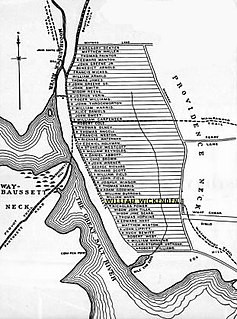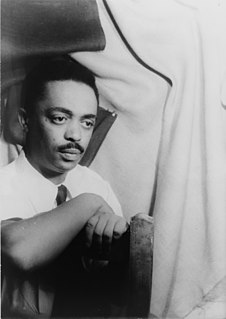A Quote by Frederick Douglass
Let me give you a word of the philosophy of reform. The whole history of the progress of human liberty shows that all concessions yet made to her august claims, have been born of earnest struggle. The conflict has been exciting, agitating, all-absorbing, and for the time being, putting all other tumults to silence. It must do this or it does nothing. If there is no struggle there is no progress.
Related Quotes
It is okay to be at a place of struggle. Struggle is just another word for growth. Even the most evolved beings find themselves in a place of struggle now and then. In fact, struggle is a sure sign to them that they are expanding; it is their indication of real and important progress. The only one who doesn't struggle is the one who doesn't grow. So if you are struggling right now, see it as a terrific sign - celebrate your struggle.
Human nature being what it is, peace must inevitably be a relative condition. The essence of life is struggle and competition, and to that extent perfect peace is an almost meaningless abstraction. Struggle and competition are stimulating, but when they degenerate into conflict it is usually both destructive and disruptive. The aim of political institutions like the United Nations is to draw the line between struggle and conflict and to make it possible for nations to stay on the right side of that line.
I love to give the song away - it's so exciting - where, I think, a lot of younger songwriters, they struggle with that. And it's a big struggle, where they want the shine and they want people to know that it was their idea and it was their doing. But luckily, I've been through that, so I can just focus on helping other people do their thing.
Every man who is not for us in this prolonged struggle for liberty is responsible for the present degradation of the mothers of the race. It is pitiful to see how few men ever have made our cause their own, but while leaving us to fight our battle alone, they have been unsparing in their criticism of every failure. Of all the battles for liberty in the long past, woman only has been left to fight her own, without help and with all the powers of earth and heaven, human and divine, arrayed against her.
The conflict between the principle of liberty and the fact of slavery is coming gradually to an issue. Slavery has now the power, and falls into convulsions at the approach of freedom. That the fall of slavery is predetermined in the counsels of Omnipotence I cannot doubt; it is a part of the great moral improvement in the condition of man, attested by all the records of history. But the conflict will be terrible, and the progress of improvement perhaps retrograde before its final progress to consummation.
A ground frequently taken by Christian theologians is that the progress and civilization of the world are due to Christianity; and the discussion is complicated by the fact that many eminent servants of humanity have been nominal Christians, of one or other of the sects. My allegation will be that the special services rendered to human progress by these exceptional men have not been in consequence of their adhesion to Christianity, but in spite of it, and that the specific points of advantage to human kind have been in ratio of their direct opposition to precise Biblical enactments.

































